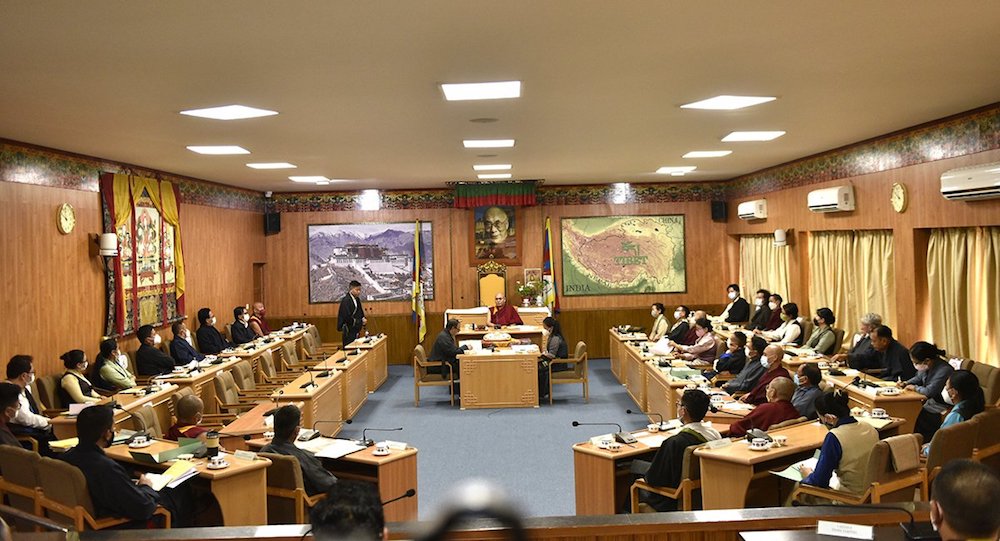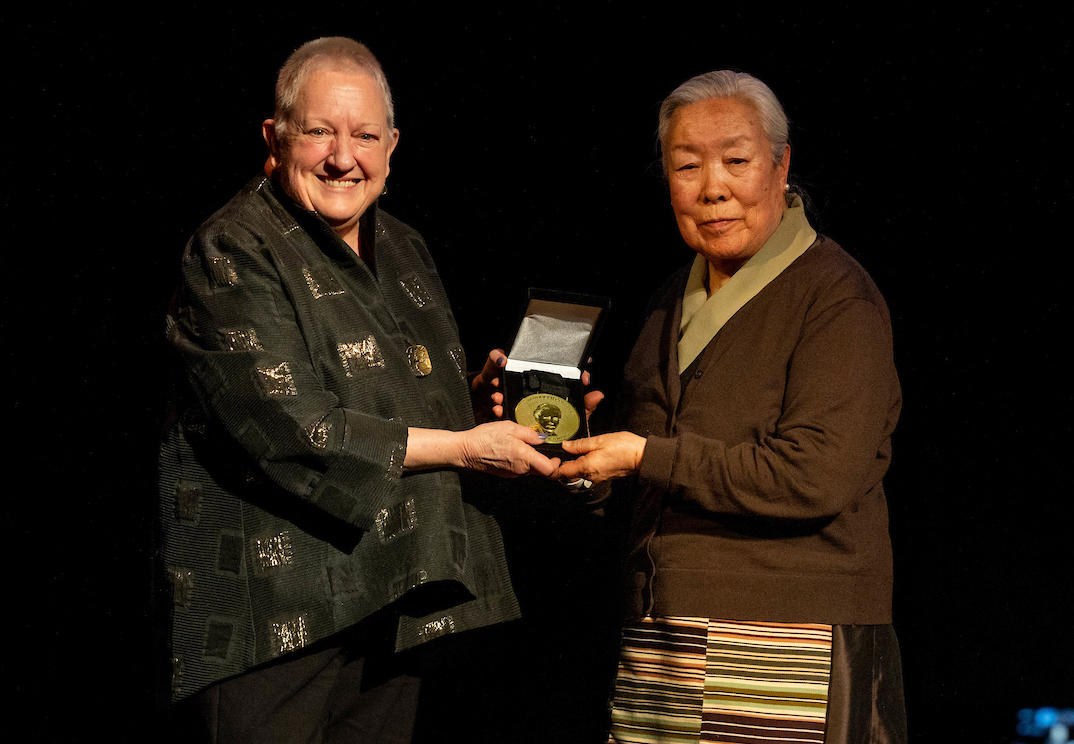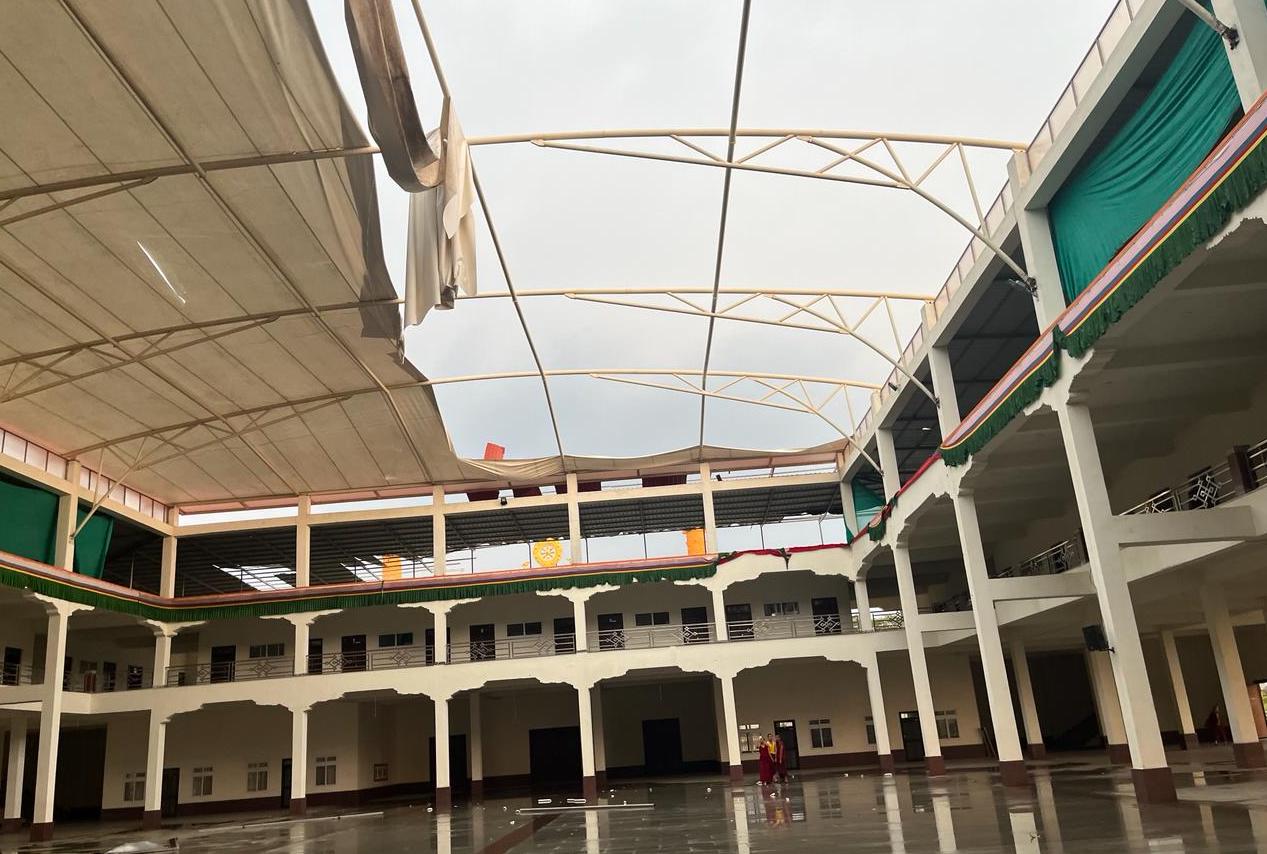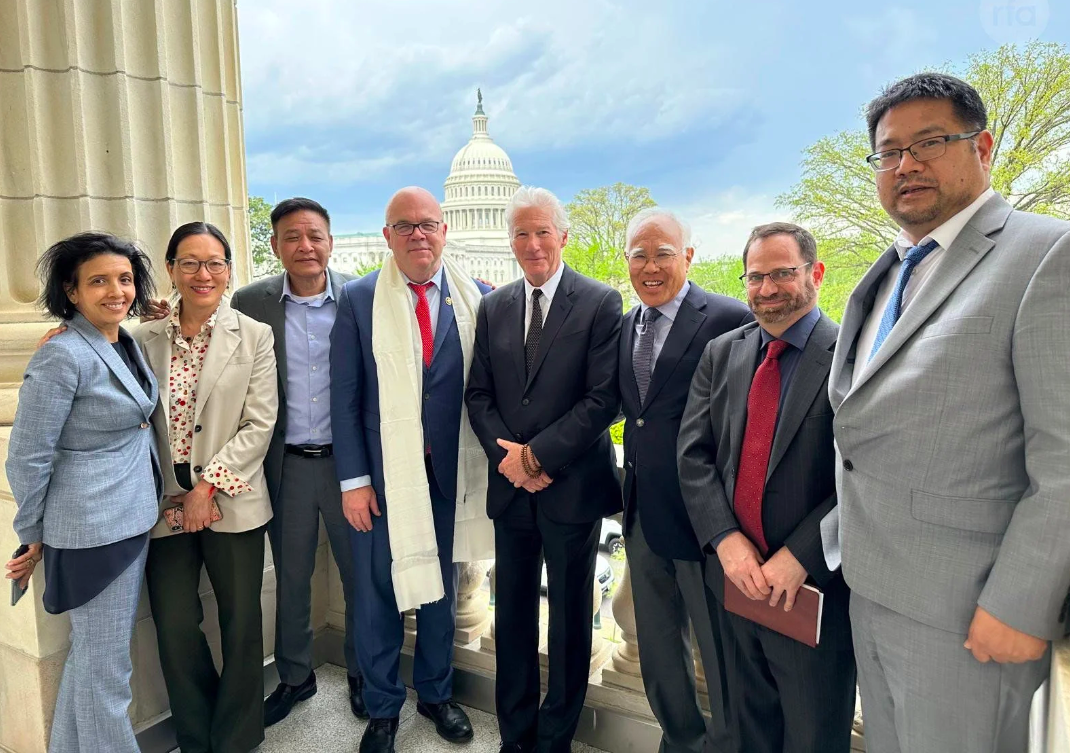By Choekyi Lhamo
DHARAMSHALA, Oct. 13: The first session of the 17th Tibetan Parliament-in-Exile (TPiE) that went on for two days concluded on Tuesday after four months of internal rift that prevented two consecutive sessions.
The Kashag’s attempt to secure seats for the remaining members of the cabinet was stalled as 19 MPs staged a walk-out protest for Kalon nomination, Utsang MP Ngodup Dorjee, citing incompetence. Two other nominees for ministership, former Kalon Thupten Lungrik and TCV Director Tsultrim Dorjee, failed to secure 50% votes of approval by the parliament.
The CTA President Penpa Tsering withdrew his remaining nominations until the next session, and urged the parliamentarians to respect the proceedings of the house next time. “It is of utmost importance that we go through with the full proceedings as per the charter. If the parliament is rendered powerless at the behest of any group, how will we get on with our executive duties?” Sikyong Penpa Tsering said in his remarks.
The two-day session saw the approval of Kasur Gyari Dolma (30 votes), former school Principal Tharlam Dolma (27), and TCHRD researcher Norzin Dolma (27) by the parliament. Various issues regarding the legitimacy of the Tibetan justices, amendment to the Charter on rules and regulations concerning the nomination of Chief justices were also brought up, but the parliament decided against any deliberation as long as the current justice commissioners continued to hold office.
The house also passed a resolution to thank His Holiness the Dalai Lama and also express remorse for the deadlock that prevented the house to convene to consecutive sessions. The resolution comes after a letter by the octogenarian Tibetan leader expressing “disappointment” over the incident.
The Speaker Sonam Tenphel in his concluding remarks thanked His Holiness the Dalai Lama for his recommendation which brought an end to the four-month deadlock.
The Speaker also congratulated the three women cabinet members and also assured Kashag led by President Penpa Tsering full support and cooperation from the Tibetan parliament in all its future endeavors and similarly, urged the parliamentarians to support the respective Kashag, as stated in the official resolution of the parliament. He also announced that the next parliament session is likely to be scheduled in March 2022.











3 Responses
Wether or not one respects and thanks His Holiness the Dalai Lama can be judged from one’s action. It is useless to express one’s gratitude to His Holy kindness, if the action is against His wishes. That is only a mouth service. It is like one who prays and say: ma-gen sem-cän tham-cä kyi dön dag sang-gyä par shog, but one does not know what it really means. Why do they get out of the assembly just like small offended children? Why can’t they discuss the whole story in peace and harmony. One can’t help but it comes a big doubt about the sincerity of certain people. Again the president has to withdraw his remaining candidates for the Kalons till March 2022 only because certain stubborn people place their silly ego above the whole administration. It would be better if they would resign and the next most voted candidates from the last election replace them. Why can’t one settle the whole issue in peace with thorough discussions in harmony so that the whole administration can function without deadlock? Is there any sensible explanation what is happening in this parliament? I am very upset and frustrated now and I know that I am not the only one. It brings me to doubt if we could be of real help to our sisters and brothers in Tibet. If it goes like this further, one has to give up the whole thing. dag-cag mong dang chag-dhang chog-lhung gi, lä-drä ma-sung ci-dhön rä-su bor, dam-tshig gäl-sog sam-jor nong-pa la ten-nä, we lost our country and our sisters and brothers are suffering in Tibet facing daily the Chinese communists’ serious human rights violations, cultural and religious deprivations and their ruthless looting of the resources in our country thus committing also an ecocide there. It is very serious. It is not a matter of my ego and your ego.
Moreover how can we, the members of the international Tibet Support Groups continue our efforts for Tibet if all the Governments argue about what is happening in our exile parliament, thus finding a new argument not to support the Tibetan issue.
These so called MPs will oppose everything the other side supports, and support everything the other side opposes. What about the right and wrong? Nah, they don’t give a damn! But no matter how stupid and stubborn they are , having these fools as the MPs is the price we have to pay for our democracy.
The 19 MPs staged a walk-out protest Kalon nominationof Utsang MP Ngodup Dorjee; they could have voted him down but chose the walk out to deny quorum.
There has been unprecedented charges and counter charges on Zoom, youtube and facebook…by OneTibet of Tenzin Lungtok of Canada, Tibetan Yesterday Talks from India, etc., with charges of being in the pay of China, Shugden, etc., without presenting evidence.
The Tibetan Parliament in exile has voted to expel the whole (three members) judiciary by majority vote (famously the stand of Bolsheviks meaning majority rule) without due process and fair representation but some 22 MPs regarded this as the height of democracy.
Some folks argued that majority resolutions and laws preempt risk to Tibetan lives and due process doctrine and condemned resorting to using English or international laws to guide Tibetan constitution which had not provided articles or amendments to meet unforeseen events.
While monks have taken vows to avoid divisive and harsh speech the religious MPs were enthusiastic in promoting their viewpoints.
Democracy is the notion that people have unalienable rights and that governments are of, by and for the people. Therefore, the constitution, the three branches of the government plus a free press are the unalienable rights of the Tibetan. Elected representative and leaders serve the people so saying that laws are more important than people’s welfare is strange. Democracy is neither topdown not bottom up and justice does not change but laws do.